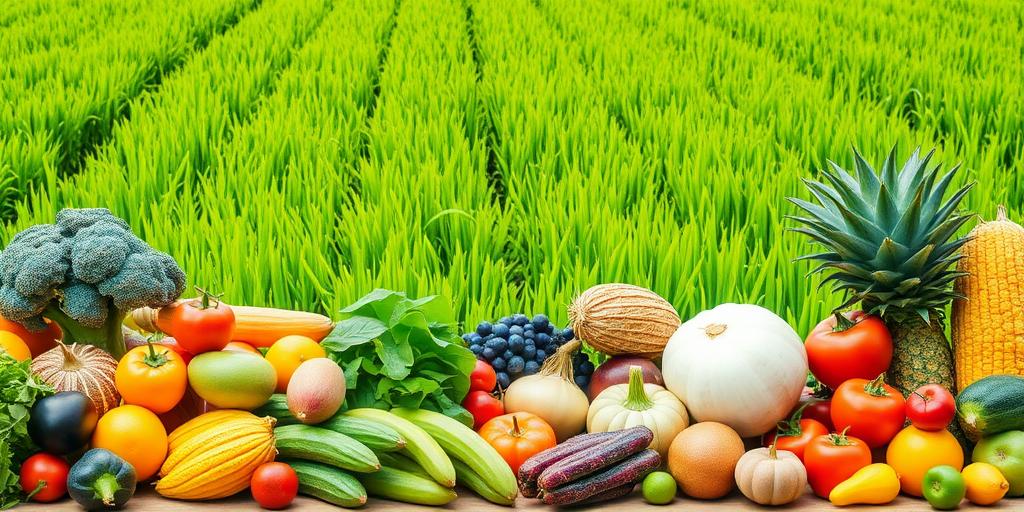Sustainable Diets for a Healthy Planet and People (2025, India & World)
In 2025, the concept of sustainable diets has moved from niche discussions to a central pillar of global health and environmental policy. This article explores what sustainable diets entail, their benefits, and how they are being implemented in India and around the world.
What are Sustainable Diets?
Sustainable diets are defined as dietary patterns that promote health and well-being, have low environmental impact, are accessible, affordable, safe, and culturally acceptable. These diets optimize natural and human resources.
Key components of sustainable diets include:
- Emphasis on Plant-Based Foods: Prioritizing fruits, vegetables, whole grains, legumes, and nuts.
- Reduced Consumption of Animal Products: Especially red meat and processed meats, which have high environmental footprints.
- Locally Sourced and Seasonal Foods: Reducing transportation emissions and supporting local economies.
- Minimizing Food Waste: Reducing the environmental impact of discarded food.
- Water Conservation: Choosing foods that require less water to produce.
- Environmentally Friendly Farming Practices: Supporting agriculture that minimizes pollution and promotes biodiversity.
Benefits of Sustainable Diets
Adopting sustainable diets offers numerous benefits:
- Environmental Sustainability: Reduced greenhouse gas emissions, decreased water usage, and improved soil health.
- Improved Public Health: Lower risk of chronic diseases like heart disease, diabetes, and certain cancers.
- Economic Benefits: Support for local farmers and reduced healthcare costs associated with diet-related illnesses.
- Social Equity: Increased access to nutritious food for all populations.
Implementation in India
India, with its diverse cultures and agricultural practices, faces unique challenges and opportunities in promoting sustainable diets. Key initiatives include:
- Promoting Millets: Millets are drought-resistant, nutritious grains that are well-suited to India’s climate. The Indian government has been actively promoting their production and consumption.
- Encouraging Kitchen Gardens: Supporting households in growing their own fruits and vegetables, reducing reliance on market supply chains.
- Improving Food Storage and Distribution: Reducing food waste through better infrastructure and logistics.
- Raising Awareness: Educating the public about the benefits of sustainable diets through campaigns and educational programs.
- Supporting Smallholder Farmers: Providing resources and training to help farmers adopt sustainable agricultural practices.
Global Implementation
Worldwide, various strategies are being employed to promote sustainable diets:
- Government Policies: Implementing taxes on unhealthy foods and subsidies for sustainable alternatives.
- International Cooperation: Sharing best practices and coordinating efforts to address global food system challenges.
- Private Sector Engagement: Encouraging food companies to develop and market sustainable food products.
- Research and Innovation: Investing in research to develop new sustainable food technologies and practices.
- Consumer Education: Empowering consumers to make informed food choices through labeling and education.
Challenges and Opportunities
Despite the clear benefits, implementing sustainable diets faces challenges:
- Behavioral Change: Shifting deeply ingrained dietary habits can be difficult.
- Economic Constraints: Sustainable food options may be more expensive, limiting accessibility for low-income populations.
- Infrastructure Gaps: Lack of adequate infrastructure for storage, transportation, and distribution of sustainable foods.
- Policy and Regulatory Frameworks: Absence of supportive policies and regulations can hinder progress.
However, there are significant opportunities:
- Technological Advancements: Innovations in agriculture, food processing, and distribution can make sustainable diets more accessible and affordable.
- Growing Consumer Awareness: Increasing awareness of the environmental and health impacts of food choices is driving demand for sustainable options.
- Collaboration and Partnerships: Working together across sectors can amplify impact and accelerate progress.
Conclusion
Sustainable diets are essential for creating a healthy planet and population in 2025 and beyond. By promoting plant-based foods, reducing food waste, and supporting sustainable agriculture, we can build a food system that nourishes both people and the environment. While challenges remain, the growing momentum towards sustainability offers hope for a brighter, healthier future.
